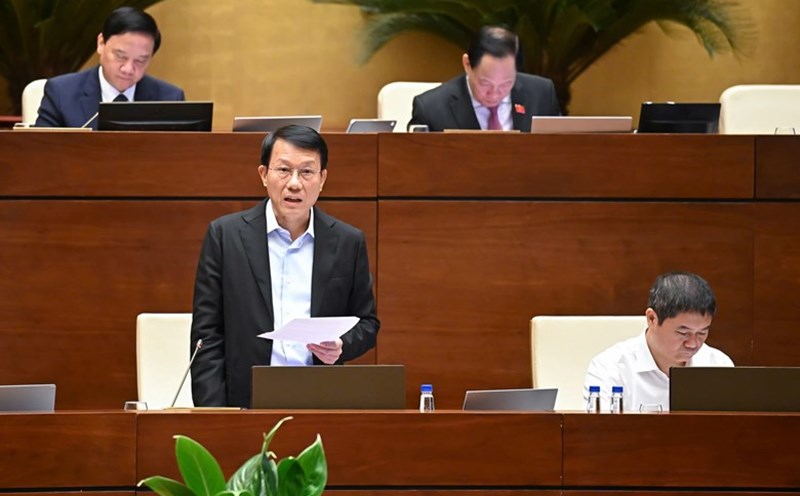On the afternoon of June 26, with 443/444 delegates participating in the vote, the National Assembly passed a Resolution on extending the agricultural land use tax exemption period.
The National Assembly resolved to extend the agricultural land use tax exemption period stipulated in Resolution No. 55/2010/QH12 of the National Assembly on agricultural land use tax exemption and reduction, which has been amended and supplemented with a number of articles according to Resolution No. 28/2016/QH14 of the National Assembly and Resolution No. 107/2020/QH14 of the National Assembly until December 31, 2030.
Explaining, accepting and revising the draft resolution, Chairman of the Economic and Financial Committee Phan Van Mai said that some opinions suggested not exempting tax in cases of land being left fallow, not being produced or used for the wrong purpose.
Some opinions suggested stipulating specific principles and conditions and criteria for tax exemption and having sanctions to handle cases of taking advantage of policies to use land for the wrong purpose or accumulate land and leave land fallow.
Agreeing with the above opinion, the National Assembly Standing Committee mentioned above, in reality, the situation of land use for the wrong purpose, land degradation, and waste of resources is still quite common.
In recent times, a number of Resolutions and Conclusions of the Central Committee and the Politburo have set out policies and requirements to perfect land use tax policies, including tax policies for agricultural land to overcome the situation of abandoned land and misuse of land.
There should be criteria to classify and determine appropriate tax-exempt subjects to ensure support for the right subjects and promote effective land use.
However, the specific regulation of criteria to determine the right subjects eligible for tax exemption, not exempted from tax for abandoned land, used for the wrong purpose requires time to study and prepare appropriately.
The draft Resolution on continuing to exempt agricultural land use tax submitted by the Government to the National Assembly at this time has not resolved the above issues.
The 2024 Land Law has a number of provisions to contribute to overcoming the situation of abandoned agricultural land. At the same time, the law on land has stipulated the authority of relevant agencies in performing the task of State management of land, applying sanctions for handling violations of land use.
Therefore, in order for the draft Resolution to be issued promptly, avoiding disruptions in policy implementation, the National Assembly Standing Committee proposed that the National Assembly keep it as in the draft Resolution on subjects eligible for tax exemption.
However, the National Assembly Standing Committee proposed that the Government conduct a full and comprehensive assessment of the current situation and effectiveness of agricultural land use in recent times, the effectiveness of the agricultural land use tax exemption policy for agricultural economic development and farmers' lives, to develop appropriate policy solutions.
In the immediate future, it is recommended that the Government pay attention to fully guiding the provisions of the Land Law and have practical solutions to ensure that there is no such thing as desertification or waste of land resources, prevent and handle cases of taking advantage of policies, improve the efficiency of land management and use in general, and agricultural land in particular.











